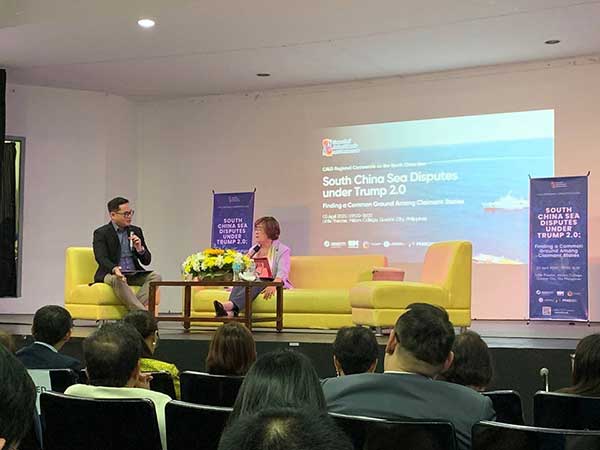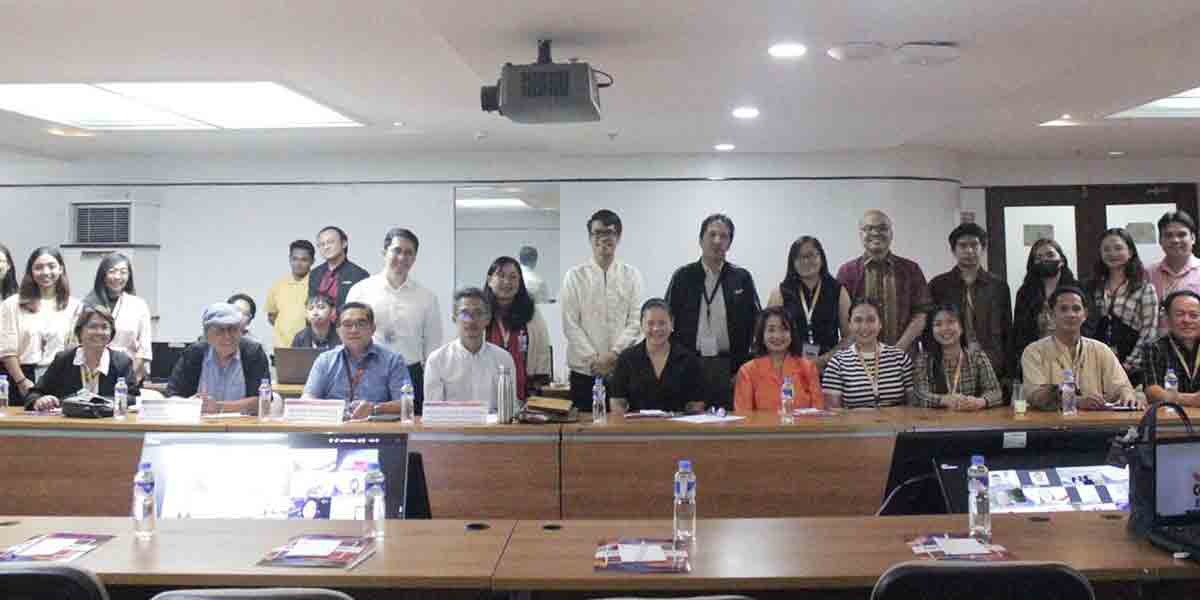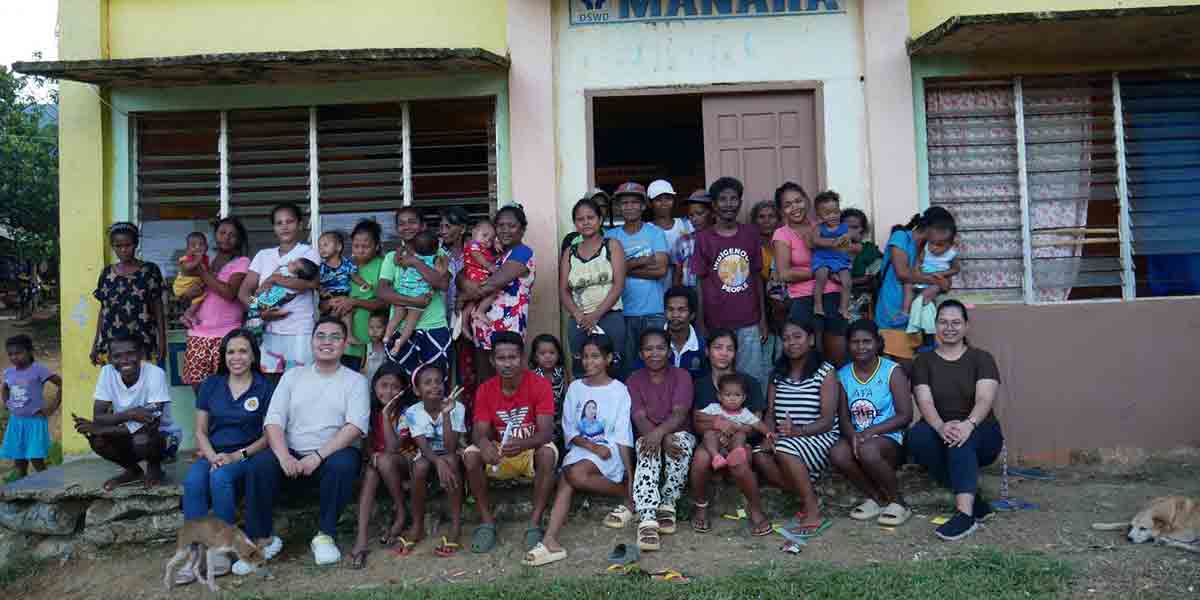
By Joseph Bernard A. Marzan
QUEZON CITY — Former Sen. Leila de Lima on Thursday, April 3, emphasized that the ongoing tensions in the South China Sea (SCS) and West Philippine Sea (WPS) have long-term human rights implications for Filipino communities.
Speaking at the 2025 Regional Conference of the Council of Asian Liberals and Democrats, De Lima said the human rights aspect of the maritime conflict remains largely overlooked.
“We all know that when it comes to SCS and WPS issues, what is normally discussed are sovereignty, China’s encroachment, militarization, and the humanitarian dimension of the dispute,” she said.
“It’s rare that the human rights aspect is tackled, even when these are very basic realities that we face,” she added.
De Lima pointed to the impact of the conflict on the livelihoods of fisherfolk and sea-based Indigenous cultural communities, especially due to harassment by Chinese Coast Guard vessels and maritime militias.
She cited the decline in fish catches as one of the most evident consequences.
If this trend continues, she warned that fisherfolk may be forced to migrate to urban areas due to economic displacement, resulting in food insecurity and broader socio-economic instability.
“These fisherfolk would be forced to seek alternative work on land or in urban centers, leading to increased poverty and economic instability,” she said.
She noted that small fishers in areas such as Zambales, Pangasinan, and Palawan face regular harassment that blocks access to traditional fishing grounds.
“When these areas are blocked, it affects food security due to a diminished fish population,” she said.
De Lima, a former justice and human rights commission chair, also highlighted the vulnerability of Indigenous communities in conflict-affected zones.
“Groups such as the Sama-Bajau, who traditionally live as sea nomads, are particularly at risk,” she said.
“Territorial restrictions disrupt their cultural and economic practices, and militarization forces them to relocate, threatening their connection to ancestral waters.”
She said these are violations of basic human rights — the right to food, health, sustainable living standards, and cultural heritage — protected under the Constitution and international treaties.
De Lima also underscored the environmental damage from militarization and island-building in the disputed areas, calling it a form of ecological injustice and a human rights violation.
She cited Section 16, Article II of the 1987 Constitution, which guarantees the right to a balanced and healthful ecology.
The United Nations Human Rights Council in 2021 and the General Assembly in 2022 also recognized the right to a clean, healthy, and sustainable environment as a fundamental human right.
She said artificial islands, military outposts, and airstrips have damaged fragile ecosystems, reducing fish populations and marine biodiversity.
Illegal and unregulated fishing, including dynamite and cyanide use, has devastated coral reefs and marine habitats.
“The destruction of coral reefs affects fish breeding grounds and the marine food chain,” she said.
“Dumping of waste and oil spills from increased naval and fishing activity further pollute the waters,” she added.
De Lima proposed a three-pronged approach to addressing the dispute: legal, diplomatic, and environmental.
“Legally, we can file a new case with a proper tribunal — not necessarily the Permanent Court of Arbitration,” she said.
“Diplomatically, we must pursue bilateral and multilateral talks, especially with like-minded coastal states.”
“Environmentally, we should tap international mechanisms that address environmental degradation,” she added.
However, she admitted that the Commission on Human Rights (CHR) lacks the authority to act decisively on human rights violations related to the dispute due to the absence of a formal charter.
The CHR was created under Section 17, Article XIII of the 1987 Constitution, with its functions defined under Section 18 and implemented through Executive Order No. 163 issued by President Corazon Aquino.
Three Senate bills seeking to institutionalize the CHR’s charter were consolidated in a committee hearing on Jan. 16, but no counterpart measures have been filed in the House of Representatives.
“We all know that the CHR only has advisory and fact-finding functions — beyond that, it has no teeth,” De Lima said.
“There is an urgent need to strengthen the CHR’s powers, particularly in addressing environmental issues as human rights issues.”




















